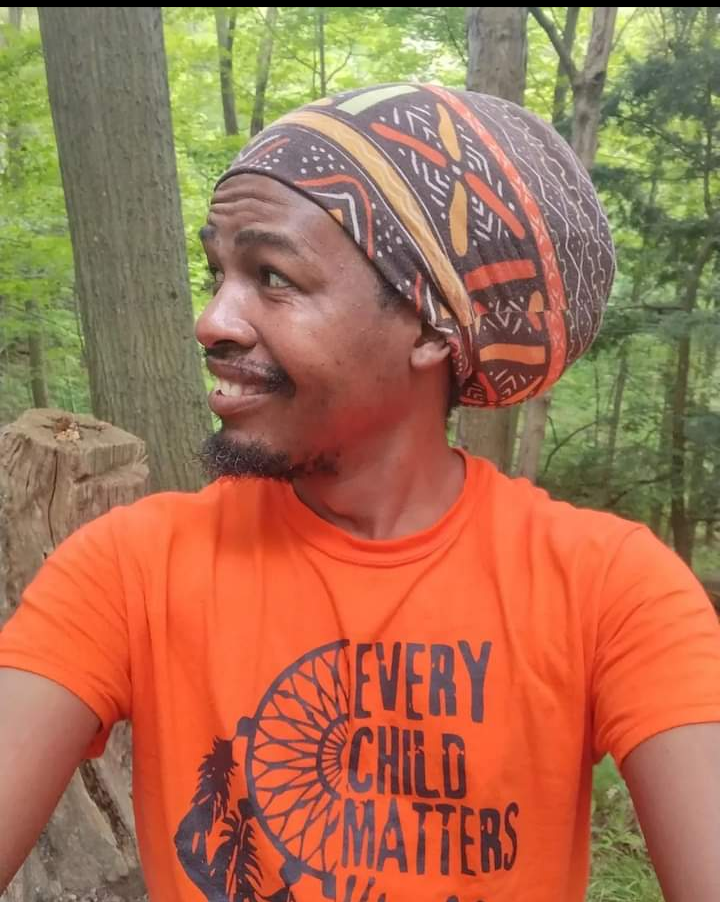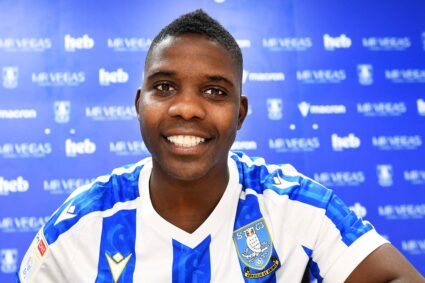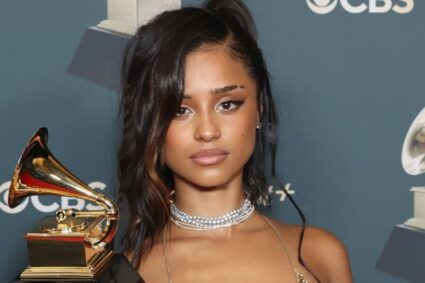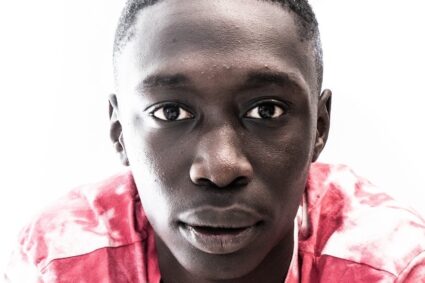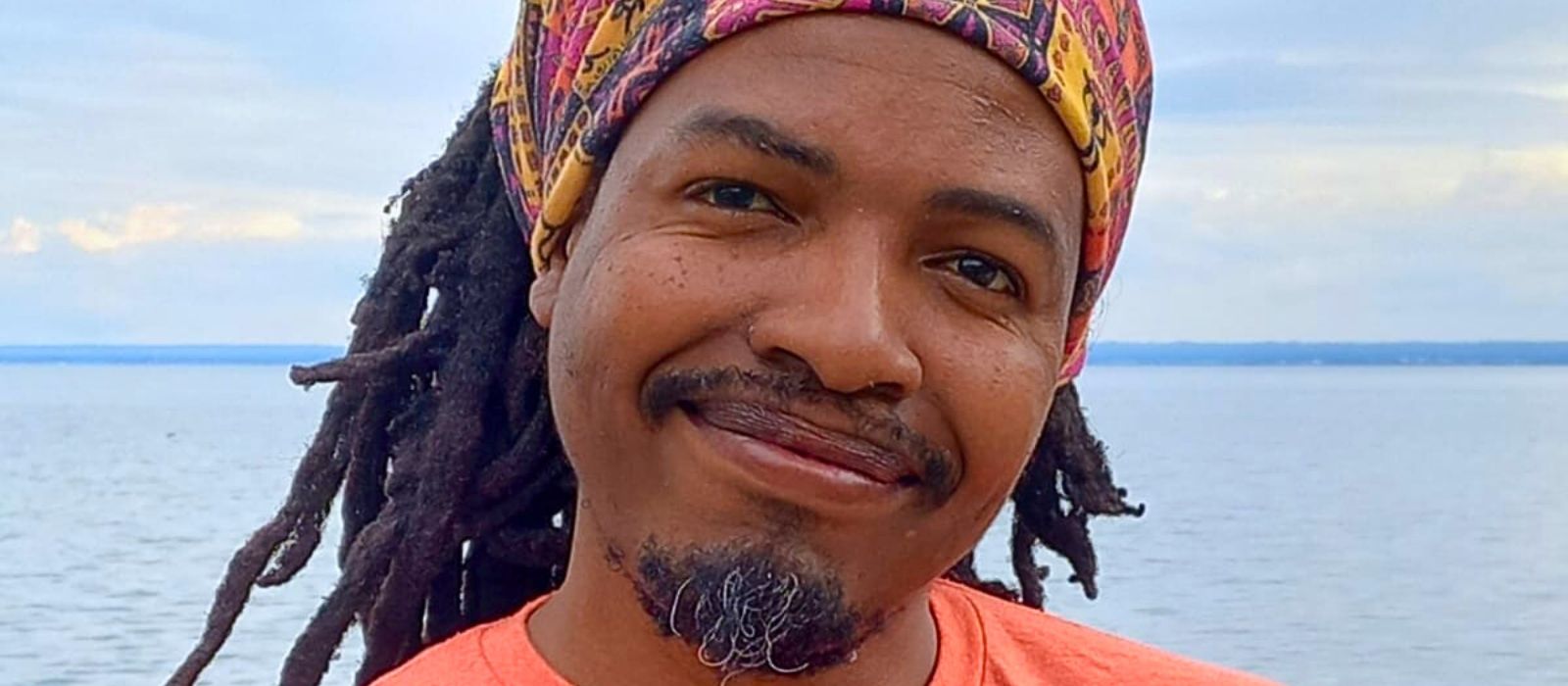
With a multifaceted career spanning poetry, storytelling, youth mentorship, and mental wellness advocacy, Mbonisi Zikhali, known as Zomkhonto, epitomizes versatility and passion.
In this exclusive interview, we delve into his journey from the streets of Makokoba, Bulawayo, to becoming a prominent figure in the arts and mentorship community far from Africa, but north of the Americas.
Zikhali shares insights into how his upbringing shaped his artistic expression, the intersection of hip hop culture with social causes, and the significance of his totem, Zomkhonto, in his work. He also discusses the importance of mental wellness advocacy in grassroots communities and reflects on the challenges and rewards of his impactful career.
Join us as we explore the vibrant world of Mbonisi Zikhali (MZ) and his profound dedication to empowering youth and fostering positive change.
From Makokoba to Prominence: Mbonisi Zikhali’s Inspiring Journey in Art and Mentorship
MM: Mbonisi Zikhali, aka Zomkhonto, you have a diverse range of roles including poet, storyteller, youth mentor, and mental wellness advocate. How do you balance these different roles, and what drives your passion for each of them?
MZ: I find that they bleed into each other. I am given to believe that to be a youth mentor, you have got to be a poet. To be a mental wellness advocate, I have got to write healing words. At the end of the day, the stories you tell must touch somebody. I am going to a youth justice summit on March 27. The outlet for me will have to be poetry. Young people are responsive to poetry and hip hop. So, if I must heal them in the platforms they respond instantly to, then my job is done.
MM: Could you share a bit about your journey from Makokoba, Bulawayo, to becoming a prominent figure in the arts and mentorship community? What inspired you to pursue these paths?
MZ: Makokoba’s upbringing is what made me. A ghetto is a refreshing place. Ask anyone who has seen women, also my mother, wake up to go sell at the market because we need to go to school. That experience is amazing. Ask anyone who has seen well meaning people lose their minds for lack of resources to escape the ghetto. I write about all these people because I saw them, some happy and some sad. I used to escape to the Mzilikazi Public Library every day after primary school because the ghetto sometimes grew too loud. I mean, we had people running from cops just run into the house and say, ‘hide me’, but come next day with groceries to thank you for hiding them. All this was poetry to me as a kid. I won my first poetry at 8 years old for a poem called ‘Mr. Ugly Ears’, hahaha.
MM: As a spoken-word artist and storyteller, how do you believe poetry and storytelling can be used as tools for social change and empowerment, particularly among youth?
MZ: I think young people are consistently seeking to hear that we got their back. So as a storyteller and poet, I try to pry their hearts open with words. Sometimes it works, sometimes it doesn’t, but on the day, it works my heart floods with sunrays. Because some ask how I do it, and they get inspired to pursue it too. And they are the best storytellers because they are still learning. So, they have sharp intuition. So, they are the best able to tell you something innocently, while we have grown a lot skeptical with time. We doubt things like love. They search for it relentlessly. And to witness them be so innocent about ideas is paralyzingly beautiful.
MM: You are known for your work in hip hop circles as Thought Illektric (a.k.a Theme Illohim), advocating for poverty alleviation, youth mentorship, and mental wellness. How does hip hop culture intersect with these causes, and what impact have you seen from your efforts?
MZ: I think hip hop is vilified for the wrong reasons. There is a book entitled Therapeutic Uses of Rap and Hip Hop edited by Susan Yadley and John Yancy. I quote “In perceiving all rap and hip-hop music as violent, misogynistic, and sexually charged, are we denying the way in which it is attentive to the lived experiences, both positive and negative, of many therapy clients?” You must admit young people see themselves in hip hop music. And when it is positive it gives them hope. But even it is negative there is a history to the negative being spoken. /the world is not all rosy for some kids. So, when they curse, remember they grow up in circumstances that curse them by the second. So hip hop gives them the opportunity to vent, love, curse the world and it is therapy to them. So, we must let them be.
MM: Your totem, Zomkhonto, holds significance both culturally and personally. How does it influence your artistic expression and mentorship work?
MZ: My grandfather, Rashilos Zikhali, grew up in Lesotho. In 1828, the King of AmaNgwane fled Tshaka and led his people through Lesotho and Eswatini. He is the product of those princes and warriors that landed to be protected from Mfecane. Zomkhonto, my totem, means “Them Of The Spear”. I use it because I believe I was born to be sharp in this world, like a spear. But also, by using my ancestry’s totem, everyone who is a Zomkhonto feels appreciated as well.
MM: Drawing from your experience as a qualified community services worker, how do you integrate mental wellness advocacy into your work with youth and grassroots communities?
MZ: I think mental wellness is critical to young people. I have worked with Children Aid Society and Family Fuse, a fully black organization, as an advocacy and life coach for black kids. The grassroots always hurt in some way or another. Especially immigrant communities. And if we don’t build young people and make them feel loved, who will? They are always waiting for our young people in these privatized prisons. So, we need to make sure they are mentally well so that no one snatches them from us when they get too agitated to cope in this cruel world.
MM: What are some of the major challenges you’ve faced in your journey as an artist, mentor, and advocate, and how have you overcome them?
MZ: I think being misunderstood is the hardest. Sometimes you appear too weird to people. Sometimes, when you say you are black and proud people walk away thinking you are arrogant. But this is the world you gave me where some people cross the street because they are afraid. So, should In pretend not to see that? Of course, I am going to be blackest and proudest because the world rarely tells us how beautiful you are. I want my son to lift his chin up and know he is a King because his father never hid it from the world. It is hard sometimes because in being so humble you lose bargaining chips with a world that consistently wants you to be silent about your oppression.
MM: Can you share some of the most rewarding moments you’ve experienced while working with youth and communities in Bulawayo?
MZ: I think when we held poetry sessions at the Art Gallery was gold. It caught on quick and to see how it changed so many of us to the point that even Harare people were coming down to see it, was perhaps my most emotional that I have ever been.
MM: Do you have a favourite poem piece; can you briefly share its meaning?
MZ: A Letter To My Son And All Black Boys. It was inspired by a disturbing video I saw of black children being mocked on camera. It got me so mad I needed to see to it my son would never be mocked ever again in his lifetime.
